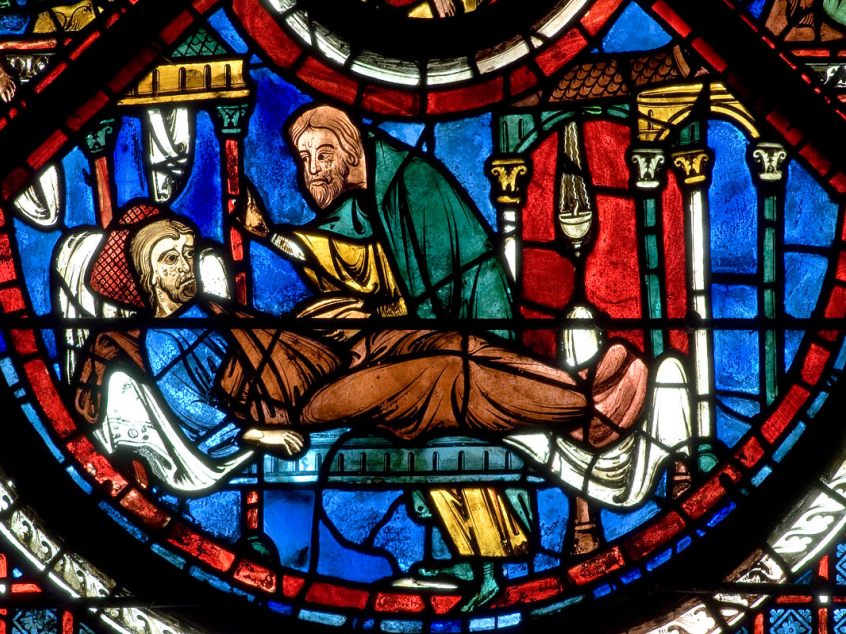Christianity is a Middle Eastern movement. Born out of Jewish Monotheism in first century Palestine, the faith was preserved in the Egyptian desert, practised by Assyrians, Copts, Chaldeans, Armenians and numerous others while the 'West' was still worshipping pagan Gods.
It's one of the ironic tragedies of the current crisis for Christians in the Middle East that they are now so commonly thought of as Western interlopers, bracketed together with the various crusaders, imperialists and pillagers who've invaded over the centuries.
One of the other effects of the westernisation of much of Christianity is that we've lost a basic understanding of the context for the life and stories of Jesus. When we read the Prodigal Son for example, we get the main message but miss much of the nuance – the image of the Father running towards the lost son is so profoundly countercultural in the setting it was told. It was extraordinary, unthinkable.

If we want to understand the full extent of the radical Gospel of Jesus, we have to learn to put these lenses back in – and view His life and parables as primarily told to Jews, under Roman occupation in the time of the Second Temple – only a few generations after the Maccabees' rebel uprising.
Nowhere is all this more useful to remember than in Jesus' attitude to Samaritans. This sect was seen a devious, sacrilegious – even demonic – by pious Jews. Upstanding citizens, teachers of the law, and anyone who wanted to retain a sense of respect would have steered well clear of them. During Jesus' lifetime (6-9AD, approximately) it's thought some Samaritans managed to get into the Jewish temple and desecrate it, possibly by bringing bones with them. This would have been an appalling act to faithful Jews. Desecrating the temple was tantamount to an act of war – and struck at the heart of Jewish identity, politics, faith and life as a whole.

This is what makes it all the more extraordinary, yet compelling, that Jesus made a Samaritan the hero of one of His most profound stories. Moreover, Jesus not only told stories about Samaritans, He met them and transformed them. His interaction with the Woman at the Well shows he had no hatred or fear of Samaritans. He simply spoke the truth to them in love, and invited them to join Him.
In 2015, there are a few hundred Samaritans left in Palestine and Israel, but these Gospel stories have resonance far beyond how we treat them.
It's a sad and bitter irony that Christians have been very bad at following Jesus' example over the last 2,000 years. For instance, we have repeatedly been responsible for persecution and mistreatment of Jewish people. And now I worry that in the midst of the atrocities perpetrated by ISIS, we are in danger of lapsing into it again in our treatment of refugees.
Republican Presidential candidates have led the tide of vitriol towards Syrian refugees, amid calls for only Christians to be allowed into America. Donald Trump has backed calls to register all Muslims in America saying, "I would certainly implement that. Absolutely... You sign them up at different places. It's all about management." When asked how the practice of registering Muslims would be different from registering Jews in Nazi Germany, Trump said: "You tell me."

Trump advocating Nazi-style policies is only the tip of the iceberg. Fellow frontrunner Ben Carson compared refugees to rabid dogs. "If there's a rabid dog running around in your neighborhood, you're probably not going to assume something good about that dog," he said. "And you're probably going to put your children out of the way. That doesn't mean that you hate all dogs."
Astonishing as this rhetoric may be from two men who claim to be Christians, it's not just their words. In fact, this week the House of Representatives voted to tighten restrictions on refugees from Iraq and Syria.
It's not only in America that Syrians, refugees, Muslims and other related but distinct groups are being conflated with terrorists. It's happening in the UK, too. This week the Daily Mail published an abhorrent cartoon, itself reminiscent of Nazi propaganda against the Jews, but this time the target was refugees. Refugees who've seen relatives killed, been violently sexually assaulted, whose other option to fleeing is death or conversion. Who are fortunate not to have drowed in trying to escape. And they're vilified for it. By Christians.
Enough.
It's time for people who call themselves Christians to stop demonising Muslims, refugees and any other minority. Jesus went out of His way to engage with, and even praise, the most hated enemy of the Jews – the Samaritans. If you can't do the same for Muslims and the wider refugee population, then you are not following Jesus.

This doesn't belittle the horrific Paris attacks, it doesn't mean forgetting the vile crimes of ISIS, it isn't a call for open borders and it isn't a suggestion that Muslims don't need to ask serious questions about those who claim their faith to do unspeakable acts of violence.
But Jesus simply doesn't offer us the option of calling ourselves Christians and then hating a group of outsiders. We've badly let down the Christian ethic over centuries, with our treatment of Jews (not to mention our dreadful treatment of Africans kidnapped and taken into slavery, American Indians slaughtered in their own land, or the indigenous peoples of South America, conquered and subjugated by 'Christians'). Let's not make the same error yet again, and allow spiteful rhetoric to mean that Christians are once again on the wrong side of history. Remember who the good guy is in the story of the Good Samaritan. He's an outsider, a refugee, he's of the same faith as a terrorist. But he's the hero of Jesus' story. That's not incidental. It's fundamental to the Gospel.














